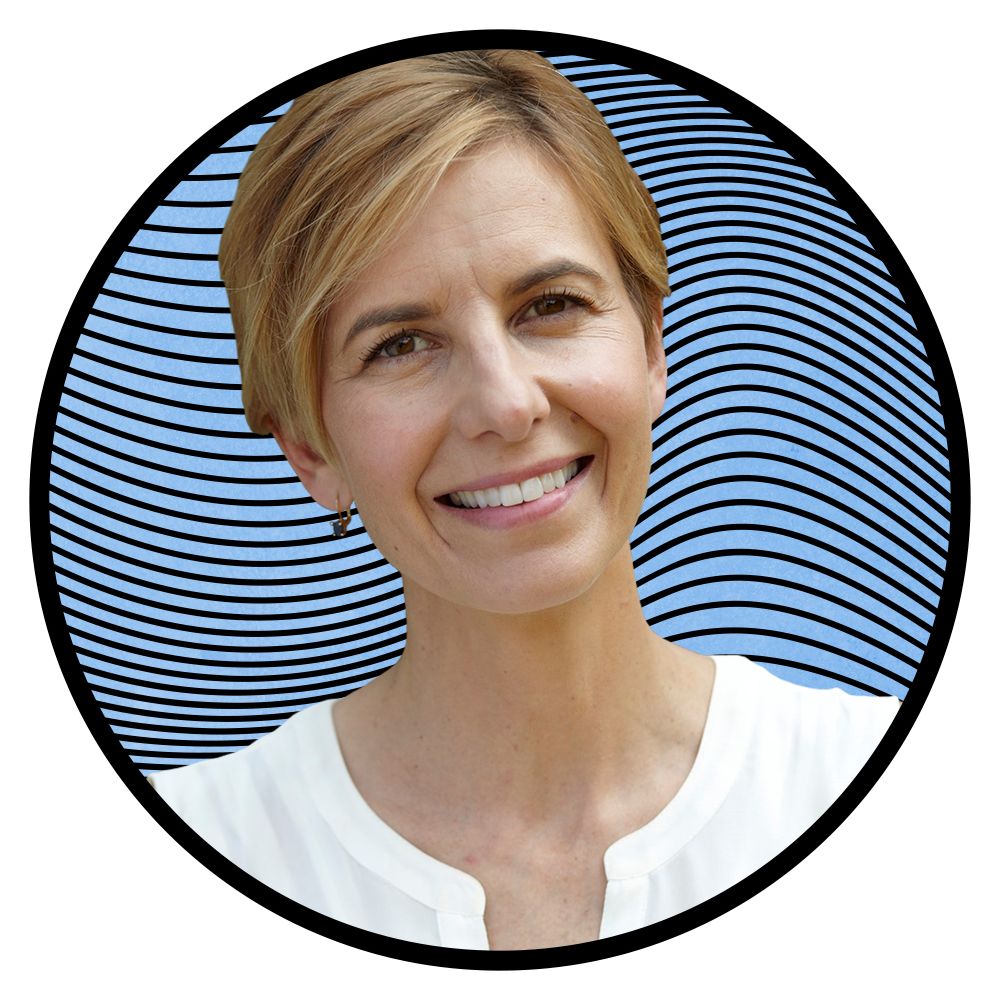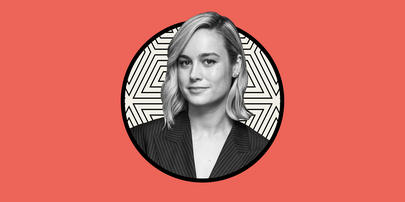A Letter to the Class of COVID-19
The founder of The Nike Foundation shares her advice for students graduating during the pandemic.

The universe certainly seems to have it in for your generation. Sandy Hook, Stoneman Douglas, the Las Vegas shootings, impending climate disaster, widespread political dysfunction, and not one but two economic meltdowns. Now a global pandemic has robbed you of the senior spring celebration you earned and put in doubt any plan you may have made for life after graduation.
I’m not here to feed you platitudes. I will not tell you to “find the silver lining” in all this or promise that life will soon be “back to normal.” You’ve probably heard that the Chinese word for crisis also translates as opportunity. But it’s not true; the actual translation is “danger at a critical moment.”
Of course, previous generations have also faced crises that threatened or derailed the plans they had made: the Great Depression, World War II, the threat of nuclear holocaust. Like those generations, you have a right to feel cheated. But like them, your life doesn’t have to be defined by the crisis thrust upon you. You will define it by the actions you choose to take at this inflection point in history.
When I was hired at Nike, I was 35 years old with a decade of experience in crisis management in the White House and at Microsoft. It was 1998, and I was brought in to navigate the fallout from a series of allegations about working conditions in factories. In the face of this crisis, Nike could have chosen to focus on simply cleaning up the mess and moving on. Instead, we developed a different perspective. We looked beyond the immediate crisis and did some serious thinking about the long-term future of our entire business. What kind of company—what kind of people—were we? What kind of legacy did we want to leave? What would the world look like after this crisis, and what would be our place in it?
That perspective led us to make meaningful commitments, not just to improving working conditions, but to things like environmental sustainability and good governance. Those and many other reforms have made Nike a stronger company in ways we couldn’t have imagined when we made them. The mantra was to continually strive to do better—not just in moments of crisis, but every day.
Okay, you’re saying, that’s great. But what does Nike’s existential crisis have to do with mine, stuck in my parents’ house watching Tiger King?
The thing about plans is that they inevitably fall apart. That’s what plans do. And it doesn’t even take something as dramatic as a global pandemic.
Get exclusive access to fashion and beauty trends, hot-off-the-press celebrity news, and more.
I once quit a job I loved, estranged myself from my mother, and moved from Seattle to Montreal for my fiancé, Francois. One day, sitting in his parents’ basement translating medical supply catalogs into French, I found out he’d been cheating on me. Whether it’s an unfaithful fiancé or a global pandemic, no matter how well you plan your route through life, the universe has a way of wrenching the steering wheel out of your hands. All you can do is be ready to shift gears and keep moving.
That’s why the most important thing you can do right now is stop worrying about where you’re going and start focusing on where you are.

My first husband, Mike, was a different kind of crisis expert; he was a Special Forces Green Beret. One day we got lost on a hike, and as the sun began to set, I started to panic. He taught me that step one in a crisis is simply to take a deep breath.
Try it right now. Really. Stop and take a deep breath. Ideally, a bunch of them. Focus on the exhale, a trick to lower your heart rate. Breathing deeply doesn’t just calm us down. It helps us focus on our immediate surroundings and see what’s right in front of us.
My first day at Nike, I faced problems that spanned a world’s worth of cultures, economies, and legal systems. I was never going to solve them all in one fell swoop. I didn’t even have an idea of where to start.
But I sat down, took some deep breaths, and looked at what was right in front of me—literally in front of me, on my desk. I saw a phone and a newspaper article with damning accusations. I dialed 411, got our lead critic’s organization’s number, and called her up. That call led to another call, then a meeting, then a trip. There were more calls, more meetings, more trips. I wasn’t working off a map. I was looking for patterns that would ultimately form one. And with each step I took, a map began to emerge. Not just a theoretical one, either. I made it real by writing it up piece-by-piece on my office whiteboard.
So if you want to make a contribution to the world, don’t start by making a plan. Instead, ask yourself what’s right in front of you. Get a pen and paper. Look around where you are “sheltering in place.” What is in the room with you, and why? My daughter used to pin up photos from magazines on the bulletin board in her bedroom, covering it with images of models and products and all the symbols of fashion. She didn’t have a 10-step plan. But 10 years later, she wound up working at a company called CAA, helping to put together the deals that led to those photo shoots she had pinned on her bulletin board when she was nine.
It’s not just your stuff. Take a new look at the people around you: your family and friends. What is unique about them, and what does that say about you? What drives you crazy about the world around you, and where do you see opportunities to help? Somewhere in this mix of people, places, and things, you’ll find a seed you can try to grow.
My decision to launch the Girl Effect was based in large part on traveling the world, having one-on-one conversations about how empowering young girls and women could help to break the intergenerational cycle of poverty. But that seed was planted decades earlier.
I was raised strict Greek Orthodox, and, growing up, I desperately wanted to be an altar boy since that’s where the action was during our interminable church services. But—news flash—I was a girl. The priest told me I could clean the church, that would be a holy task.
In my family and community, like in many traditional cultures, the world revolves around boys. Girls are an afterthought. I’m not saying I walked around for 30 years stewing about this. But it has always been a fundamental part of me. And that seed took root as the Girl Effect, which has transformed the lives of some 30 million adolescent girls around the world.
Maybe you are reading this and thinking that your grand plan wasn’t about changing the world. Maybe you just want a job. Maybe you’d planned to figure it all out during your senior spring. But instead of squinting at a horizon that—with the economy in turmoil—is fuzzier than ever, you, too, can start where you are.
If you want to make a contribution to the world, don’t start by making a plan.
And if where you are is lost and confused, that’s fine. You don’t need to have all the answers. But you can start by asking some great questions. Try this: Make a list of five people to talk to. This can include anyone from your sister to a teacher you really like to someone you don’t know but greatly admire.
The trick is, instead of trying to figure out how these people can get you what you want, try to figure out what they know that you don’t. Stop valuing these relationships based on what they can do for you—it might be that nobody can do much for you right now—and start valuing them because of the experiences they can share.
Try asking questions like: What went wrong in your career, and how did you recover? What’s one opportunity you see in the world right now that others aren’t seeing? What is the pattern of your career and where did it come from? What questions should I be asking you that I’m not? And always make sure to ask for a name—or two, or three—of more people they think you should talk to.
Conversations like these don’t just help you find answers. They help you find the single most valuable thing you can have as you build your career: an irrationally committed adult. Not a friend, not a peer, but an adult who’s invested in your success. Someone you can confide in and count on, someone you feel accountable to, someone with whom you can share your plan and to whom you can report on your weekly progress. I’ve been lucky enough to have many irrationally committed adults in my life, and if I could wish anything for you, it’s that you find one or more of your own. And if you can’t find one, post your plan to me.
I hope some of this advice helps you get moving in the right direction, even in the midst of this crisis. Unfortunately, you can’t life-hack your way out of the underlying reality that this is a tough time to be launching your career. Maybe, despite your best efforts, your ambition is going to be running into brick walls for a while.
But one thing that successful people will always tell you is that it’s hard to put ambition in context with the other things that make life fulfilling; things like relationships, family, and economic security. Now in my 50s, I’m proud of what I’ve achieved and glad to have spent so much of my life traveling the world and doing meaningful work. But I also realize that I never really slowed down enough to find a partner, build my community, and take care of my physical and mental well-being. That realization has been a gut punch. I’m trying to find a better balance, but I wish I’d started trying when I was your age instead of mine.
Now is the time to start thinking about who you are and what you want from life beyond work. What do you want in a partner? Do you want a partner? Is the person you’re with now the right partner? What does marriage mean to you? What kind of family do you want to raise? When? And where do you want to live, where you grew up or somewhere else? How much money do you need to be happy? What kind of friends do you want in your life? What possessions can’t you live without? What kind of people and activities give you energy, and what kind drain your energy?
The point here isn’t to transfer all the energy and anxiety that went into forming your career ambition into a self-improvement bender. But life is about finding the harmony between our professional ambition and our personal lives. And, too often, we spend this time focused entirely on one note. Use this opportunity to listen carefully to the notes that usually get relegated to the background.
I know this is a lot to process. But everything about who you are that made you hopeful for your future—your brilliance, your creativity, your passion—that’s all still there. You just didn’t know what it was all going to be for. You didn’t know your whole life had been leading up to this moment. But it’s here. Take a deep breath. You are exactly who you need to be. And exactly where the universe needs you to be.
Related Stories

